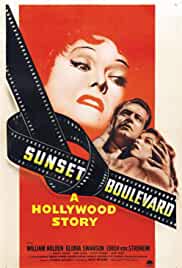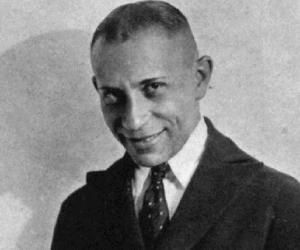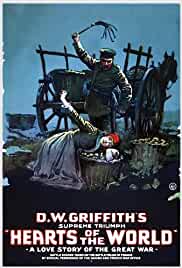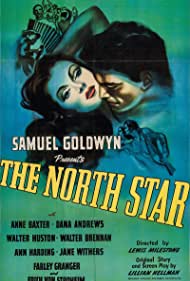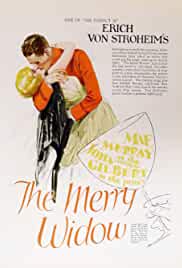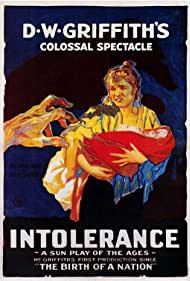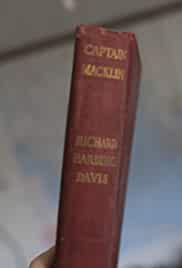Prominent Austrian-American director, actor and producer of the silent era, Erich von Stroheim career in Hollywood began as a stuntman, technical advisor and assistant director. He worked as an assistant (uncredited) for D.W. Griffith in the silent movies like ‘The Birth of a Nation’ (1915) and ‘Intolerance’ (1916). As an actor, too, he began by doing uncredited roles in movies like ‘The Country Boy’, ‘The Failure’ and ‘Ghosts (all 1915). His first credited role came in director John Emerson's 1915 silent romance film ‘Old Heidelberg’ wherein he played the role of Lutz, Prince Karl's valet. He continued to do uncredited role in movies like ‘His Picture in the Papers’, ‘Macbeth’, ‘Intolerance’ (all 1916), ‘In Again, Out Again’, ‘For France’ and ‘Reaching for the Moon’ (all 1917) as well as smaller parts in movies like, ‘The Flying Torpedo’, ‘The Social Secretary’ (both 1916), ‘Panthea’ and ‘Draft 258’ (both 1917). As America joined the second world war, he was roped in to play German villains in silent movies like ‘Sylvia of the Secret Service’ (1917), ‘The Hun Within’ and ‘The Heart of Humanity’ (both 1918).
In 1919, he starred in the lead role of Lieutenant Eric Von Steuben in the romance drama film ‘Blind Husbands’. The movie, an adaptation of his story ‘The Pinnacle’ was also his directorial debut as well as his first as a screenwriter and producer. The film was a huge box office success despite his obsession with details that led to rising costs. His next film as a director and screenwriter was the 1920 drama film ‘The Devil's Pass Key’. The film is now lost as no print is officially known to be available. A couple of years later, in 1922, he once again wrote, directed an acted in the thriller drama movie ‘Foolish Wives’. The two films once again boosted his credibility as a director.
Erich von Stroheim’s masterpiece work as a director came in 1924 with the psychological drama film ‘Greed’ the script of which he adapted from Frank Norris’s 1899 novel ‘McTeague’. The original film was nine hour long; however, to bring it to a manageable length, MGM studio executive cut it down to 2.5 hours without Stroheim’s consent or involvement. The cut down version was a financial failure but the film still retained its appeal and is considered a classic and one of the most important films in the history of cinema. The original version of the film is lost.
As director, his next few films – the romantic drama/black comedy film 'The Merry Widow' (1925; also screenwriter and producer), the romantic drama ‘The Wedding March’ (1928; also lead actor) and the drama film ‘Queen Kelly’ (1932; also screenwriter and co-producer) were all commercial successes. In 1931, he also wrote, directed and starred in sequel to ‘The Wedding March’ titled ‘The Honeymoon’. The only copy of the film was lost in a fire in 1950. His last film as a director was the 1933 romance drama movie ‘Hello, Sister!’ (originally called ‘Walking Down Broadway’). The film was re-edited by other directors but it released without a director credit. The original version of the film once again got lost. Due to his uncompromising attention to details, demand for absolute artistic freedom and mounting cost of filming, his career as a director came to an end after this film and he then pursued his acting career in Europe and sometimes in America.
As an actor, Erich von Stroheim had a starring role in the musical drama film ‘The Great Gabbo’. The movie, released in 1929, was his debut in a talkie movie. He next worked in the ‘Three Faces East’ (1930), ‘Friends and Lovers’ (1931), ‘The Lost Squadron’, ‘As You Desire Me’ (both 1932), ‘Fugitive Road’, ‘Crimson Romance’ (1934), ‘The Crime of Dr. Crespi’ (1935), ‘Marthe Richard’, ‘Under Secret Orders’ and ‘The Alibi’ (all 1937). The year 1937 also saw him playing the role of Captain von Rauffenstein, the crippled commander of a German concentration camp in Jean Renoir's classic anti-war French film ‘Grand Illusion’. The film was a hit in France and was the first foreign language film to be nominated for the ‘Academy Award’ for Best Picture. It also bagged the ‘New York Film Critics Circle Awards’ (Best Foreign Film) and ‘National Board of Review Awards’ (Best Foreign Language Film).
In the 1943 American war film ‘Five Graves to Cairo’, Erich von Stroheim played the supporting role of German Field Marshall, Erwin Rommel. The film was a commercial success and also won critical appreciation for Erich von Stroheim. In the 1950 American black comedy film ‘Sunset Blvd’, he played Max Mayerling, a former Hollywood silent film director who is employed as a butler and chauffeur of his ex-wife and faded film star Nora Desmond (played by Gloria Swanson). The latter film won him a nomination at ‘Academy’ and the ‘Golden Globe’ Awards in the best supporting actor category.
Erich von Stroheim worked in a number of other French and American films between 1938 and 1955. Amongst his American films are ‘I Was an Adventuress’ (1940), ‘So Ends Our Night’ (1941), ‘The North Star’ (1943), ‘The Lady and the Monster’, Storm Over Lisbon (both 1944), ‘The Great Flamarion’, ‘Scotland Yard Investigator’ (both 1945) and ‘The Mask of Diijon’ (1946).
The French films in which he acted include ‘Ultimatum’,’ Gibraltar’ (both 1938), ‘Behind the Façade’, ‘Le monde tremblera’, ‘Immediate Call’, ‘Pieges’ (all 1939), ‘Menaces’, ‘Tempête’ (both 1940), ‘Macao, l'enfer du jeu’ (1942), ‘That's Not the Way to Die’, ‘Devil and the Angel’, ‘Danse de Mort’ (all 1946), ‘Le Signal rouge’, ‘Portrait of an Assassin’ (both 1949), ‘Midnight... Quai de Bercy’, ‘The Other Side of Paradise’, ‘Alarm in Morocco’ (all 1953), ‘The Infiltrator’ and ‘Napoléon’ (both 1955) His last film as an actor was the French film ‘Madonna of the Sleeping Cars’ (1955).
